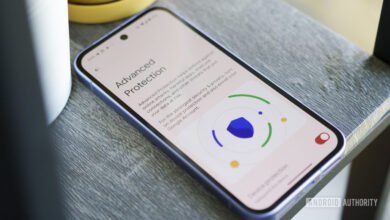Google’s Supreme Court Showdown: The Final Hurdle Before Epic’s October Reckoning

▼ Summary
– Google cannot share Play Store revenue with any entity distributing or planning to distribute Android apps until November 1, 2027.
– Google is barred from requiring app developers to launch apps first or exclusively on the Play Store in exchange for payments or services until November 1, 2027.
– Google may not prevent developers from launching different app versions on third-party stores by conditioning payments or services until November 1, 2027.
– Google cannot mandate the use of Google Play Billing or restrict developers from communicating about or using alternative payment methods until November 1, 2027.
– A three-person Technical Committee will be established to resolve disputes related to these provisions, with members selected by Epic, Google, and jointly, and costs shared accordingly.
The legal battle between Google and Epic Games has reached a pivotal moment, with the Supreme Court poised to make a final decision before the October deadline. This high-stakes confrontation centers on court-ordered restrictions that will reshape how Google operates its Play Store for the next three years.
For a period of three years ending on November 1, 2027, Google is barred from sharing Play Store revenue with any entity involved in distributing Android apps or planning to launch a competing app store. This measure aims to prevent financial incentives that could undermine competition.
Additionally, Google cannot tie payments, revenue sharing, or access to its services to an app developer’s agreement to launch an app first or exclusively on the Play Store. The same prohibition applies to discouraging developers from releasing enhanced or different versions of their apps on third-party platforms.
The tech giant is also restricted from conditioning any benefits on agreements with device manufacturers or carriers regarding the preinstallation placement of the Google Play Store on Android devices.
A significant change involves in-app payments: Google may not mandate the use of Google Play Billing for apps on its store, nor can it prevent developers from offering alternative payment methods. Developers must be allowed to inform users about other payment options and cannot be forced to adjust prices based on the billing system used.
Furthermore, Google cannot stop developers from communicating with users about the availability or pricing of apps outside the Play Store, including providing direct download links.
To oversee compliance and resolve disputes, a three-person Technical Committee will be established within thirty days. Epic and Google will each choose one member, and those two will select a third. This committee will address technical and procedural issues arising from the new rules. If the committee cannot resolve a dispute, either party may seek a ruling from the court. While the committee cannot extend deadlines, it may advise the court on extension requests. Each party will cover the cost of their appointed member, with the third member’s fees shared equally.
(Source: The Verge)



